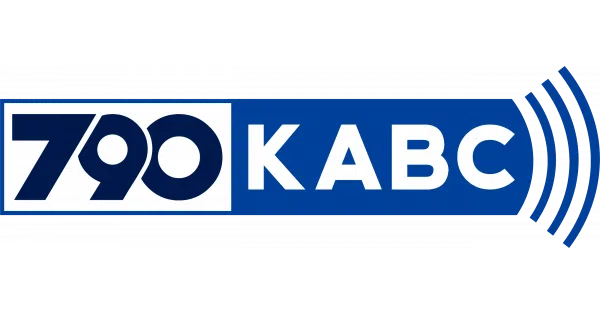Holiday Pay Boston Massachusetts
Holiday Pay and Overtime Attorney in Boston, Massachusetts
Restrictions on business openings on Sundays and legal holidays, commonly known as the Massachusetts Blue Laws, are enforced by the Attorney General's Office. This summary is intended to provide a general overview to help both employees and employers understand what is required by these laws.
- If you have questions about possible violations of these laws, please contact the Attorney General's Office, Fair Labor Division at 617-727-3465.
- If you have questions about statewide permit approval process for holiday openings, please contact the Division of Occupational Safety's Minimum Wage Program at 617-626-6952.
While this summary is designed to provide the general information you need, you can also refer to the statutes: M.G.L. Chapter 149, § 148 and "The Wage Act" and M.G.L. Chapter 136, § 6, which outlines the 55 exemptions from the general prohibition against businesses opening on Sundays. If a business does not fall into one or more of the statutory exemptions it may not lawfully operate on Sundays, unless the employer is granted a one day permit. M.G.L. Chapter 136, § 7.
- Sunday Openings and Premium Pay Requirements
- Holiday Opening Laws for Retail Stores
- Holiday Opening Laws for Manufacturing Establishments
- Sunday Openings and Premium Pay Requirements
While Massachusetts law bars many types of businesses from opening on Sundays, most retail establishments can open without a permit on Sundays. However, you would be well-served to check the provisions of the law if you have any questions. A business that is not covered by one of the exemptions may apply to the police chief in the city or town where that business is located for a one day permit to work on Sunday. M.G.L. Chapter 136, § 7.
Since 1994, most retailers may open before 12:00 p.m. on Sundays, except for those engaged in the sale of alcoholic beverages. Please note that the AGO enforces the Sunday premium pay requirements, the Commonwealth's Alcoholic Beverages Control Commission ("ABCC") regulates when such business may open.
There are special provisions that apply to certain retail establishments who choose to operate on Sundays, which require payment of premium pay and prohibit employers from requiring employees to work on Sundays.
Time and One-Half Premium Pay and Voluntariness of Employment
As a general rule, if a retailer has more than 7 employees, then any nonexempt workers (meaning those employees who are not exempt administrative, executive, or professional employees under M.G.L. c. 151, § 1A (3)) must receive Sunday Premium Pay, at a rate of pay at least one and one-half times their regular hourly rate. M.G.L. Chapter 136, § 6 (50). However, regardless of whether an employee is exempt from premium pay, employers covered by the statute cannot require employees to work on Sunday, and an employee's refusal to work may not be grounds for discrimination, dismissal, discharge, reduction in hours, or any other penalty. M.G.L. Chapter 136, § 6 (50).
A retail employer who fails to pay Sunday premium pay as required may be fined up to $1,000. M.G.L. Chapter 136, §§ 6 (50) and (52); M.G.L. Chapter 149, § 180A. Additionally, a retail employer who requires an employee to work on Sunday may be fined up to $1,000. M.G.L. Chapter 136, §§ 6 (50) and (52); M.G.L. Chapter 149, § 180A.
Our Firm: No upfront fees or costs
Contingency Fee Representation
All employment cases for employees are taken on a contingency basis. We are only paid a fee when and if we win your case, and we advance all litigation costs. Our goal is to make expert legal representation accessible to every hardworking employee.
Serving Massachusetts County
We have proudly served all of Massachusetts County since 1993.
The Employment Lawyers Group has successfully handled
2,000+
Separate California Employment Cases
Media Engagements
Sample Case Results
Employment Case
$18,402,868
Jury verdict for male visually harassed and subject to crude comments by a female manager
breach of commission contract
$1,150,000
Unpaid commissions of two plaintiffs
unpaid wages
$875,000
For 4 oil field service industry workers whose times worked were not recorded on timesheets and were on-call
Disclaimer: These results are based on the facts of these specific cases and do not guarantee or predict a similar result in any future case.
Practice Areas
Discrimination
Age, Disability, Family Medical Leave (FMLA/CFRA), Gender, National Origin, Pregnancy, Race, and Sexual Orientation claims.
Unpaid Wages & Overtime
Recovering earnings for Overtime, Bonuses, Commissions, Meal & Rest Breaks, and Prevailing Wage violations.
Sexual Harassment
Compassionate and effective representation for victims of sexual harassment and hostile work environment claims.
Wrongful Termination
Representing employees terminated in violation of public policy, contracts, or California and Federal law.
Leaves & Retaliation
Protecting employees who face adverse actions after reporting illegal activity or taking protected medical leave.
Whistleblowers
Advocating for employees who report fraud, waste, or abuse in their organizations under whistleblower protections.
Our California Locations
![]() Bakersfield
Bakersfield
5401 Business Park S, #214,
Bakersfield CA 93309
![]() Sacramento
Sacramento
777 Campus Commons Rd, #200,
Sacramento CA 95825
![]() San Francisco
San Francisco
524 Union St, #400,
San Francisco CA 94133
Additional Sites
About Firm Founder, Karl Gerber
Firm Founder, Karl Gerber, has been an employment wrongful termination attorney since 1993. He has represented a wide range of employees throughout California.
Mr. Gerber has won 51 of the binding arbitrations and jury trials he first chaired, and a number of his appeals are published. This deep trial experience is the foundation of the firm's strategic approach to litigation.
The employment attorneys employed by the Employment Lawyers Group have worked at the firm well in excess of five years, have also tried many different labor cases, and have all been extensively trained on employment wrongful termination by Karl Gerber.
Ready to Discuss Your Case?
Your rights as an employee matter. Contact us for a free, confidential case review.
Contact Us
Share Your Workplace Situation Directly With Our Attorneys Via This Form.















